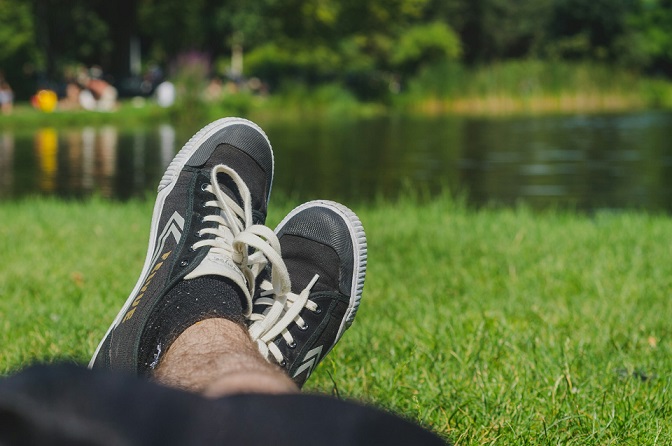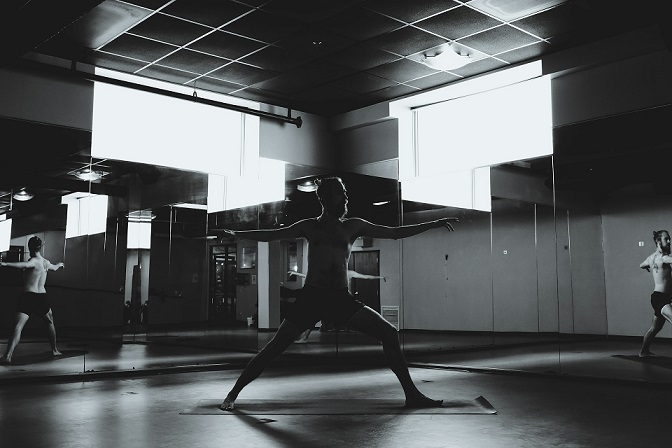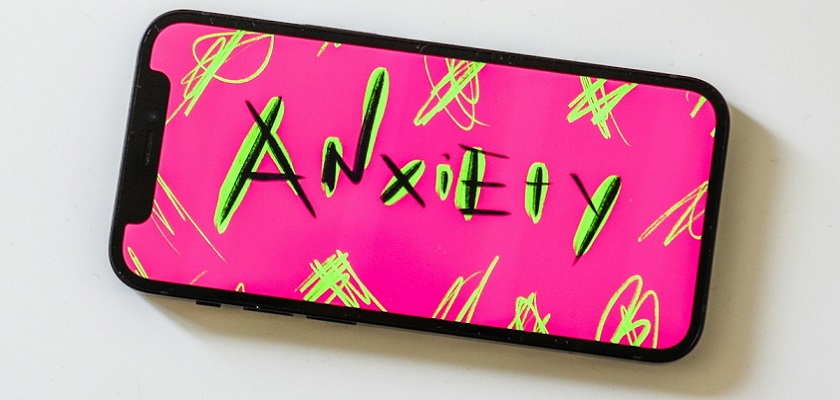Anxiety is something we all feel at one time or another in our lives. It is the body’s natural response to a real or perceived danger, “perceived” being a keyword. Sometimes, your body doesn’t need a clear and present threat to trigger the sympathetic nervous system and make you feel anxious.
It’s common to feel this way when your life is stressful or facing something that causes big emotions. However, some people deal with anxiety daily, and sometimes, for no reason at all.
If your anxiety is annoying enough to impede or stifle your focus on daily tasks, there’s good news on the horizon. Explore a few tips and tools to manage your anxiety immediately, along with some long-term coping mechanisms that will help build a solid foundation for a more peaceful future.
Immediate coping mechanisms to manage your anxiety symptoms.

Question your thought pattern
Sometimes your anxiety can be tied to what’s on your mind. Shifting your thought patterns can help redirect your body’s fight-or-flight response.
Challenge the source of your fear/stress. Ask if your racing thoughts are true. Is the situation blatantly dangerous, or is your mind rooted in fear of the unknown?
Take some deep breaths
There’s power in focused breathing. Controlling your breath is a life hack to controlling your mind and body. Learning some measured breathing practices could help you recover quicker when anxiety rears its ugly head.
Try exploring the 4-7-8 technique as an immediate coping mechanism for your anxiety. Breathe in deep for four seconds, hold that breath for seven seconds, and then exhale slowly for eight seconds. Repeat the process for just a few minutes, and you’ll begin to regulate your heart rate.
You can learn more breathing exercises for anxiety here.
Try some aromatherapy
Your sense of smell is another powerful tool for managing anxiety. Smells can cause us to have physical reactions, and now is the time to induce a positive physical response.
Essential oil scents like lavender, chamomile, and sandalwood have proven to be very soothing in stressful times. You can use a dab of oil on your wrists, a candle, or even the natural form of these herbs to get a whiff when in need.
Get your body moving
Exercising is one of the best coping mechanisms for controlling your anxiety. If you’re anxious, do some exercise and make yourself sweat. Once you’re done working out, you likely won’t have the energy to be high-strung or feel distressed anymore.
Learn more about the mental health benefits of exercise here.
Learn to ground yourself
Grounding yourself when your mind is spinning out of control helps redirect the energy behind your anxiety. Try taking your shoes off and placing your feet directly into some dirt or sand. Grounding yourself to the Earth helps equalize your body’s energy like a grounding wire in an electrical circuit.
You may also benefit from the 3-3-3 rule. The 3-3-3 rule is when you stop for a moment to name three things you can see and three sounds you can hear. Then, you identify and physically touch three nearby objects. This method is a coping mechanism that will help you reconnect your mind to your body when it’s floating around in anxiety land.
Long-term coping mechanisms for managing anxiety.

Identify and purposefully manage your triggers
Pinpointing the things that tend to make you feel anxious will help move your journey of managing your anxiety forward. When you know what things make you feel distressed, you can either avoid them or learn new (less scary) ways to approach them.
Some common anxiety triggers include chronic pain, medication side effects, past traumas, caffeine, smoking, work, relationships, and other common life stressors.
Learn more about identifying your triggers here.
Embrace formal therapy
You may be able to tackle your mental health challenges on your own, but it’s never a bad idea to talk to someone who is trained in such things. An educated therapist could help you to identify triggers and equip you with useful coping mechanisms for your anxiety while simultaneously working on some of the more rooted issues that might feed into your mental stress.
Adopt a daily meditation routine
Taking five to ten minutes a day to stop and meditate can make a notable difference in your overall stress levels, but you have to be faithful to the routine. If you need more information about the dos and don’ts of meditation, take a quick peek at the video below to get started.
Manage the basics of life
Your diet, your exercise habits, your sleeping habits, and your bathing habits are all extremely influential on your mental health. The best advice someone can take is to regulate and manage those elements of life first. This is an extremely beneficial coping mechanism.
Protect the basics of your life. Make sure you get enough sleep at night. Make sure to eat a healthy meal whenever you’re hungry. Get your body moving and your heart rate up a little every day, and enjoy the peaceful solidarity of a hot shower regularly. Properly managing these aspects of life will work wonders to regulate your battle with anxiety.
Wrapping it all up
Always remember that anxiety is not as powerful as your brain wants to make it feel. It is manageable, and you can take control of your anxiety. It just takes a concerted effort. Consider how much time you spend each day serving the needs of the people around you, and make sure to balance the care you give others with the care you give yourself.


